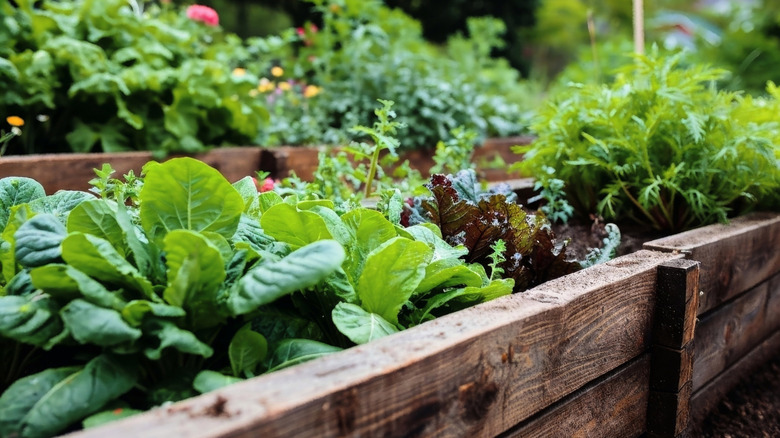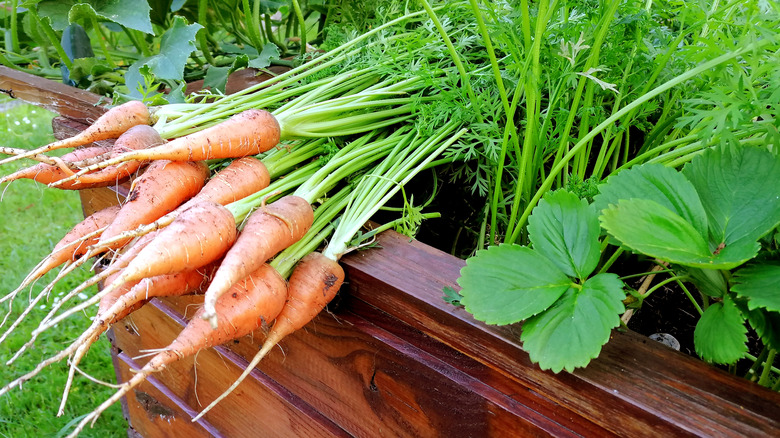The Easy-To-Grow Vegetable That'll Flourish In Your Raised Garden Beds
When it comes to starting a vegetable garden, there are a lot of factors to consider. For example, you need to decide if you're going to try growing vegetables from seed or which gardening techniques you should experiment with. With an overwhelming number of plant and design options to choose from, it's easy to get swept up in the details. So, if you're looking for an easy-to-grow vegetable that will flourish in your raised garden beds, why not start with carrots?
Perhaps you've heard of the benefits of successfully growing carrots in containers and want to give it a try for yourself. Or maybe you're more interested in utilizing raised garden beds to bring order to your cottage garden. Whatever the reason, carrots are a great fit for many gardens, regardless of gardener status. Carrots thrive in USDA hardiness zones 2a to 11b and are a popular addition to many diets. They're also the perfect companion plant for herbs like rosemary, chives, oregano, and thyme, as well as leafy greens like arugula, kale, cabbage, and Swiss chard.
Here's why carrots thrive in raised garden beds
The benefits of growing in raised beds are mostly related to soil control and maximizing space. Carrots are a great vegetable for raised garden beds because raised beds provide good drainage. This way, carrots don't run the risk of getting root rot and can grow straight and long. Thankfully, if you were interested in growing other root vegetables in raised beds besides carrots, such as radishes, turnips, or beets, many of the same rules apply. Raised beds may offer better protection from garden pests and add a bit of aesthetic flair to your garden as well.
Carrots need at least six hours of full sunlight a day, so wherever you place your garden, choose a sunny spot. When planting carrots in a raised bed, ensure that the bed has a depth of at least 12 inches to provide more space for the roots. However, the depth at which you plant your carrot seeds can also depend on the cultivar you choose. So before planting, check that the carrots you selected match the depth of your beds (e.g., shorter varieties prefer shallower beds!). Attending to the soil is also key, as carrots prefer loose soil. Don't forget to remove your weeds and use a garden tool to mix organic matter (compost, fertilizer) into the beds. Carrots grow best during spring and fall, roughly in at least 45 degrees Fahrenheit, so avoid planting during the height of summer or deep winter. The ideal time to plant carrots is roughly March to June — harvesting in June through December, or roughly 10-16 weeks after planting.

